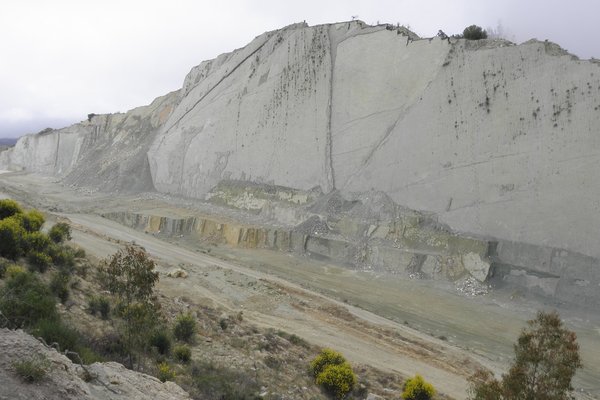Bolivia
Cal Orck’o
Cal Orck'o is a quarry wall known for its paleontological discoveries in the form of dinosaur tracks. There are 12,092 individual dinosaur tracks in 465 trackways, divided among nine different types of dinosaurs. They are 68 million years old.
Site Info
Official Information
- Full Name
- Cal Orck’o (ID: 1816)
- Country
- Bolivia
- Status
-
On tentative list 2003
Site history
History of Cal Orck’o
- 2008: Rejected
- Only national and regional significance
- Type
- Natural
- Criteria
Links
- UNESCO
- whc.unesco.org
All Links
UNESCO.org
- whc.unesco.org — whc.unesco.org
News Article
- April 26, 2015 latino.foxnews.com — With new discovery, Bolivia has most dinosaur footprints on earth
- Oct. 8, 2014 news.artnet.com — Thousands of Bolivian Dinosaur Tracks in Danger - new WHS attempt in 2015?
Community Information
Travel Information
Recent Connections
News
- latino.foxnews.com 04/26/2015
- With new discovery, Bolivia has mo…
- news.artnet.com 10/08/2014
- Thousands of Bolivian Dinosaur Tra…
Community Reviews
Show full reviews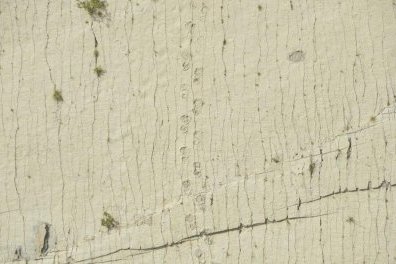
I visited Parque Cretacico from Sucre back in April 2016. The park is quite touristic and kiddy, with nothing much of value, but it has binoculars and a great view of the limestone quarry wall that is Cal Orck'o. If you have your own binoculars, you can just not enter the park and see the footprints from nearby, but definitely the best thing to do is to take the scheduled tours to the quarry itself. Unfortunately, I hadn't planned that out at the time, but I was satisfied with the view from the park. If you're a group of 4, you may simply take a taxi to the site from Sucre, as my family and I did.
I don't get the fuss UNESCO makes over this site. Regional importance? This is the largest and one of the densest collections of preserved dinosaur footprints in the world, with about 10000 on that single rock face! The fact that the site is on a cement factory and limestone quarry, and is in danger of erosion and destruction makes the situation even more urgent. The site needs international awareness and protection, and is undoubtedly worthy of it, enough said.
Keep reading 0 comments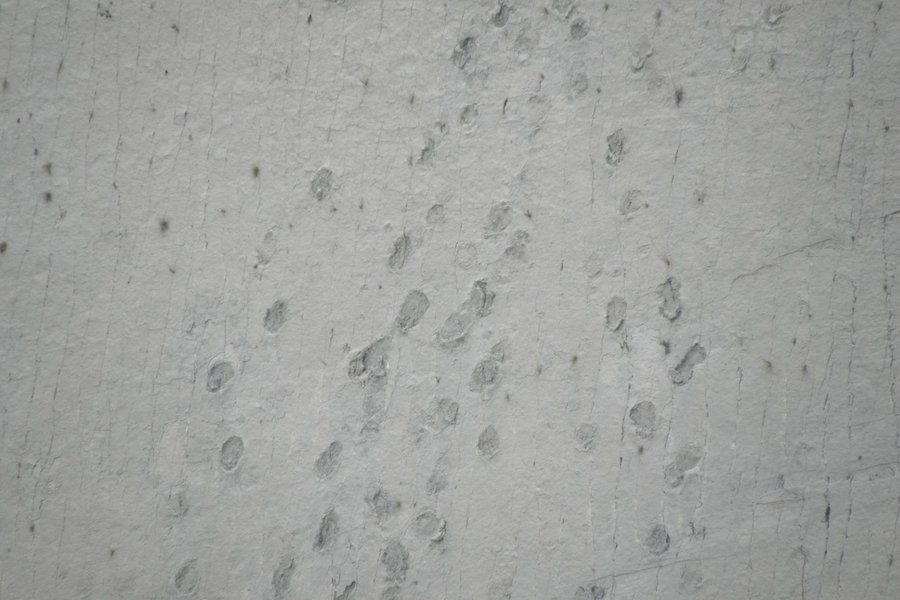
Finding myself in the beautiful WHS city of Sucre, I thought it would be a terrible waste to not visit the footprints at Cal Orck'o when they are so close and easy to access. We jumped on city bus 4 from about a block away from the central market and followed a winding route through town until it ended right at the entrance to the cement factory. The factory is still going strong (though the guide at the museum expressed hope that it would eventually be shut down) and if not for the fact that I could see the museum entrance inside, I would have been hesitant to walk around the busy cement trucks and in through the chain-link fence.
Looking at the "wall" of footprints from outside the museum is nearly as good as from the inside. Bring binoculars if you don't want to rely on theirs being in good working condition or don't want to go inside. Or better yet, show up early enough for the 12.00 or 13.00 guided tours that walk you down right to the wall for a closer view. We didn't show up until later in the afternoon so unfortunately missed this opportunity but looking back it would have been the redeeming feature worthy of the price of admission. The museum itself had a few info boards and you can opt to take a free guided tour around but was mostly a park full of models with very few actual fossils or artifacts …
Keep reading 0 comments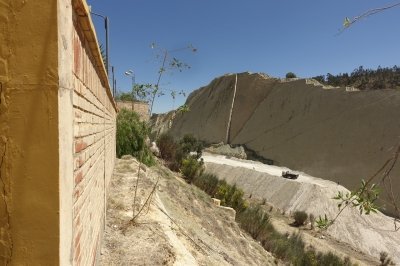
Having made my way up the hill to see the dinosaur steps at Cal Orck'o I found myself in front of a closed museum door. As so often before; I really need to work on my travel itineraries.
Now I had come to understand that even without the museum offering some context information you would be able to see the site. I was standing at the museum gate on a platform and all I could see were plenty of trucks driving in and out in what to me looked like a usual quarry, a pretty busy one at that.
I was about to climb the fence hoping to get a better view of those dinosaur steps around the corner on the quarry edge (picture). But then a local teen intervened and was so kind to give me a short tour of the side. Indeed, I was already seeing a major part of the site from where I was standing. The seemingly random holes I was seeing on the other side of the quarry were those fabled dinosaur steps. Originally, the steps had been on the ground, but tectonic shifts had turned this 73 degrees upwards. The footprints were found due to work in the quarry.
OUV
Looking back millions of years to see the footprint of dinosaurs is plain amazing. So I would encourage you to make the small detour if you happen to be in Sucre anyhow. However, as long as the site is …
Keep reading 0 comments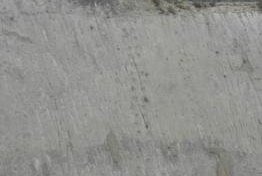
The Cal Orck'o (Quechua for “Chalk Mountain”) is one of three dinosaur track-sites that are competing for WH status. In 2009 I had already visited one of them, the Dinosaur Ichnite sites in northern Spain. A disappointing visit, as the tracks there are very difficult to distinguish.
This site near the Bolivian capital Sucre however is the biggest in its kind. Over 5000 imprints and 462 trackways from various different animal species have been found. They were discovered in 1994, when they were exposed by erosion on a wall disused by the nearby cement factory. The wall is 1500 meters wide and 130 meters at its highest, and contains 7 layers of track and fossil sediments. They are 68 million years old. This location used to be a shore of a former lake, where the animals left their imprints in the mud.
I got there on the touristy “Dino-truck”, that leaves three times a day from Sucre’s main square. A return ticket costs 17 bolivianos, entrance to the site 30 and another 5 for bringing your camera – so 52 bolivianos (5,20 EUR) in all, quite a European price. When you arrive after about 20 minutes driving from the center of Sucre, it looks like you’re entering the adjacent huge cement factory. The wall with the imprints is impressive as well: one almost flat surface, as if a mountain is sawn in half.
I went up right away to the viewing platform, from where you can study the wall with …
Keep reading 0 comments
